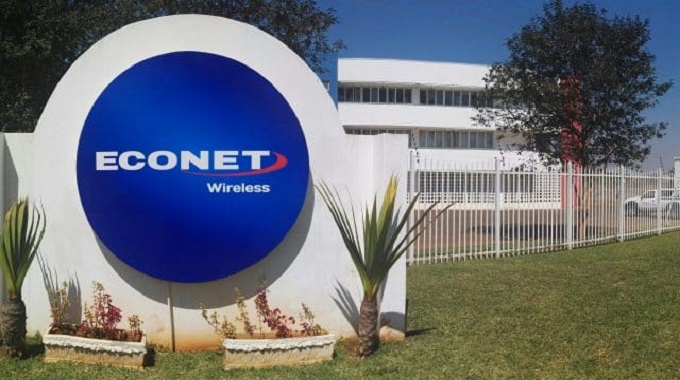The Zimbabwe data market is currently in an uproar over the enforcement of a Fair Usage Policy by Econet Wireless, as the company grapples with how to effectively address the excessive data usage of its SmartBiz product by a few users.
The move has been criticized as being drastic and not properly announced in advance. There has also been criticism that it was being applied wrongly, as only a reported less than 10% of the 100 000 smartbiz bundle subscribers have been identified as heavy users. The thinking is that Econet must have taken targeted action directly only at the excessive user accounts, whose ‘abuse’ was reportedly affecting the data performance of the rest of the users.
However, the action taken may have been justified, since less than 10% of all SmartBiz users were reportedly now consuming a humongous one third of all Econet data resources, something that clearly needed to be managed! This was astronomical data uptake, which surely called for a move to somehow contain or manage it.
The few excessive users were reportedly downloading massive volumes of data for activities such as personal server hosting, torrenting, or streaming to multiple third-party devices. Some were reportedly even making neighborhood hotspots for a premium, like internet cafes, heavily degrading the quality of network in specific areas.
This excessive usage, unfortunately, occurred while other legitimate business users struggled to access basic services.
Having noticed the runaway data consumption, Econet – which initially had promised ‘unlimited data’ was compelled to implement data management, or a soft cap, at 200GB for every Smartbiz user, a move which took the market by surprise, causing an outcry especially among the high SmartBiz users.
It is only fair that normal users be protected from the data hungry users so that everyone enjoys the same amount of data usage across the network.
Products all over the world are sold with terms and conditions, sometimes in small print, especially on huge promotions, to a point that internationally, even the unlimited data usage does not mean infinite data allocation, but fair and reasonable usage.
A Fair Usage Policy is, in essence, a “reasonable use” guideline established by service providers. Its purpose is to guarantee that all customers have fair access to resources and services.
In the global telecoms industry, FUPs enable operators to offer competitive, often “unlimited”, data packages while simultaneously protecting against misuse or excessive consumption by a small minority of users.
This ensures that vital resources like bandwidth and network performance are shared fairly across the entire user base.
It is critical to understand that “unlimited” does not equate to infinite. No mobile network, particularly in regions like Zimbabwe, where bandwidth is imported using valuable foreign currency, can sustain unregulated, unmetered consumption by all users without compromising the overall quality of service.
The application of Fair Usage Policies is a global best practice. Leading telecommunications companies worldwide, including AT&T, Verizon, Vodafone, and African giants like MTN, Safaricom, and Vodacom, all employ FUPs to manage their network resources.
Their commercial mobile data or fixed broadband offers, even those promising ‘unlimited usage,’ invariably include caveats in their terms and conditions specifying that their Fair Usage Policy applies.
But you cannot blame the consumers who were also sold the product as ‘unlimited’. Very often they do not read, know or even care to understand the fair usage policy, which unfortunately always catches up with them, once expected behavior threshold is triggered.
The lesson is that companies must invest in educating and explaining their products to all consumers. Due care must also be practiced by various marketing experts so that they do not oversell a product, creating an ‘infinite’ imagination to users, who then in turn feel indebted, after paying for the package.
Such a scenario creates antagonism between consumers and suppliers who will then spend the better part of their business time fighting over access to a product, instead of focusing on improving the customer experience and service provision.
To be honest, the SmartBiz product is one of the best market products ever created in Zimbabwe. The conversation must have really been around how hundreds of thousands and millions of users have accepted the product. SmartBiz is a success case study in how a product can be so attractive it attracts heavy usage, driving data consumption and enabling a business boom across the SSME sector.
Data usage is a good problem for any service provider. When packaged right and delivered clearly to the prospective users, both the supplier and consumer enjoy symbiotic growth of the business.
From a better and bigger perspective, an increase in broadband for every nation directly drives national Gross Domestic Product, Increased bandwidth, particularly broadband, has a positive and measurable impact on a country’s Gross Domestic Product (GDP). Studies show that doubling broadband speed can increase GDP by 0.3%.
This is a good problem that we are currently going through and must be celebrated as we have a data hungry market and service providers with a capacity to deliver. It’s the basics that must be addressed for a better business environment that benefits both the customers and the business.














Comments